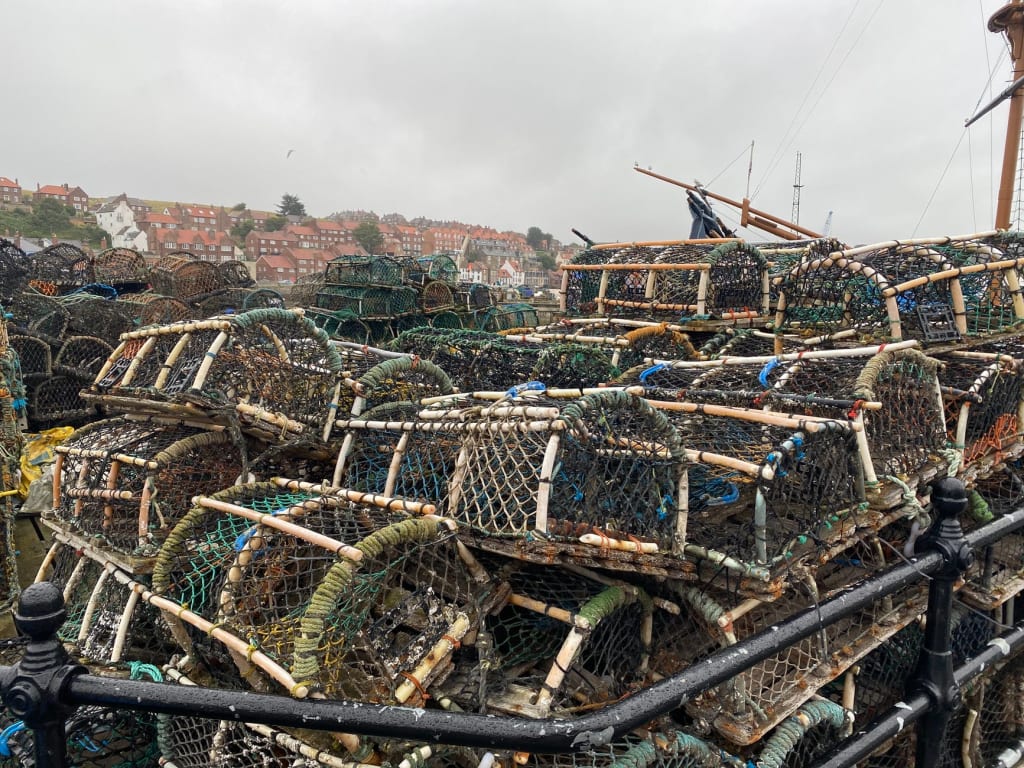The 2020 Mi’k maq Lobster Dispute & Indigenous Food Sovereignty
by M.S. Dietvorst

During the 2020 Mi’kmaq Lobster Dispute in Nova Scotia Canada, we saw an altercation between angry non-Indigenous fisherman and the self-regulated Indigenous fisherman of Nova Scotia. This dispute over sharing the local resources started centuries ago when Europeans first told the local Indigenous peoples that they had to restrain their hunting and fishing. In 1999, the Mi’kmaq won the right to self-regulate fishing (Slaughter, 2021), which frustrated the local non-Indigenous fishermen who were subject to Canadian overfishing restrictions. It is important to note that Indian self-government was abolished by the Canadian government, and traditionally it was Indigenous Elders that would tell an overzealous hunter or fisherman to knock it off. Traditional Indigenous hunting and fishing goes way back before modern Canadian regulations and Indigenous people do not feel that they have to answer to European-imposed restrictions.
During this pandemic situation, everybody is suffering economically and struggling to make ends meet. Today, the modern fisherman are understandably frustrated that they cannot fish as gratuitously as a fisherman of Indigenous descent. Unfortunately, the 2020 Lobster Dispute ended in violence with violent confrontations and arson (Slaughter, 2021). Indigenous Food Sovereignty, or IFS, is a new buzzword floating that describes a framework to justify Indigenous hunting and fishing rights. Right now, IFS as a theory is still rather rough around the edges and there are still questions about how to be fair to non-Indigenous fisherman and hunters, and how to regulate over fishing and hunting by the Indigenous peoples. Here are a few key points to explain IFS.
What is Indigenous Food Sovereignty?
The Indigenous Food Systems Network defines IFS as “Indigenous Food Sovereignty.” This is a specific policy for solving the underlying problems that affect Indigenous peoples. It affects “our ability to respond to our own needs for healthy, culturally adapted Indigenous foods.” Essentially, this means that Indigenous people gain food security by producing their own food and setting their rules for producing their food.
Food Issues for Metis, non-Status, and Status Indians started with the disappearance of the Buffalo
At the end of the 1800s, Indigenous people in Canada faced a serious social crisis. Their long-term food source, the buffalo, was disappearing. They felt coerced and desperate to sign treaties that promised them food, land, and farming equipment. Hunger affected the Metis, too. Primary documents show that the northern Ontario Metis were forced to write to beg the government for help. The government did help some of these Metis, and Status Indians had to take them in. Today, Indigenous hunger on the reserves is well documented (Cidro, 2015, p. 27).
In the inner-city, Indigenous people encounter “food deserts”
Today, Indigenous and Metis in urban centres, too, face hunger and malnutrition. An urban studies paper from the University of Winnipeg investigates ”food deserts” in inner-city Winnipeg. The author, Jamie Cidro, writes that “inner-cities with low income populations often have less access to supermarkets. This means the residents are more dependent on smaller food and convenience stores that are more expensive and less likely to offer a range of healthy foods.” (Cidro, 2015, p. 28).
Indigenous testimony in urban studies show that IFS is a mode for the Indigenous people to rediscover their lost cultural identity, heal lost family connections and de-colonize themselves mentally.
One Indigenous woman says about IFS and building family connections that “it needs to be taught, especially to our kids. There are people that are open and are seeking it“ (Cidro, 2015, p. 34). Similarly, another indigenous man mentions that IFS would heal the lost connections and lost dignity during the Residential school years. “That was the piece that really interrupted our food sovereignty [residential schools] and the relationship to growing what we eat and even the hunting” (Cidro, 2015, p. 37).
The Canadian-Indian treaties show that the Canadian government always intended Indigenous people to produce their own food.
We can assume from the treaties that Canada always intended Indigenous people to produce their own food by granting hunting and fishing rights that are guaranteed as rights in treaties, the Indian Act and the Royal Proclamation of 1763.
The treaties state that Indigenous people can produce their own food through traditional means such as hunting and fishing, as Treaty 6 states, “Her Majesty further agrees with Her said Indians that they, the said Indians, shall have right to pursue their avocations of hunting and fishing throughout the tract surrendered” (Canadian, 2021). Treaty 6 further insinuates that Canada expects the Indigenous to produce their own food because the Treaty promised tools for food production, as it states, “the following articles shall be supplied to any Band of the said Indians who are now cultivating the soil, or who shall hereafter commence to cultivate the land, that is to say: Four hoes for every family actually cultivating; also, two spades per family as aforesaid: one plough for every three families, as aforesaid; one harrow for every three families, as aforesaid; two scythes and one whetstone, and two hay forks and two reaping hooks,” (Canadian, 2021).
Looking Ahead
Today, hunger continues to be a longstanding issue in both city and reserve Indigenous communities. I asked my Metis friend, Ryan Bellerose, what the most important problem is for Metis today. Without hesitating, he said economic development. When I asked what that would look like, he said “weed-growing, greenhouses, and Indigenous Food Sovereignty.” Continued advocacy for Canadian Indigenous people should attempt economic development in the most pragmatic way possible. We can help alleviate both their immediate and their long-term problems
What ideas do you have for IFS? Do you think Canadians would volunteer to help run Indigenous greenhouses? Tell me your thoughts at [email protected] or @msdietvorst
Bibliography
Canadian, G. (2021, January 17). Internet Archive Way Back Machine:. Retrieved from Treaty Texts: Treaty No. 6.: https://web.archive.org/web/20200117162529/https://www.aadnc-aandc.gc.ca/eng/1100100028710/1100100028783
Cidro, J. (2015). Beyond Food Security: Understanding Access to Cultural Food. CJUR, 24-43.
Slaughter, G. (2021, January 17). Mi'kmaq lobster dispute: A conflict brewing since the 1700s. Retrieved from CTV News: https://www.ctvnews.ca/canada/mi-kmaq-lobster-dispute-a-conflict-brewing-since-the-1700s-1.5153568
About the Creator
Monique Sabrina
Geek, writer, reader.
twitter @msdietvorst






Comments
There are no comments for this story
Be the first to respond and start the conversation.